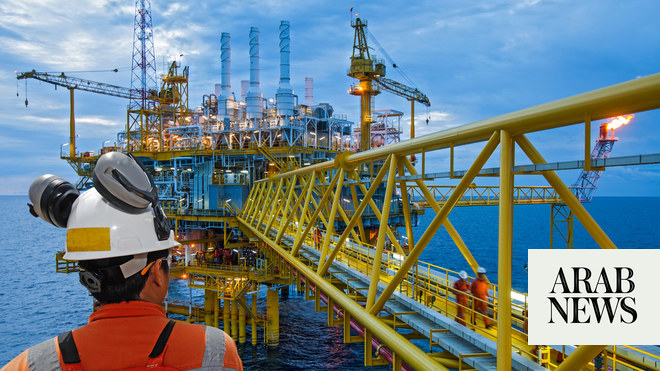
Last week highlighted that life is becoming ever more difficult for international oil companies.
A court in the Hague on Wednesday ordered Royal Dutch Shell to cut its emissions by 45 percent by 2030, rather than the envisaged 30 percent, in order to comply with the company’s aims to become carbon neutral by 2050.
On the other side of the Atlantic, Exxon is under pressure from shareholders to return more capital to them and invest less in exploration and drilling. Shareholders also demanded that two directors considered insufficiently in tune with climate change objectives be removed from the board. Furthermore, Chevron shareholders want the company to be held responsible for emissions generated by customers. The latter has been par for the course for European oil firms for some time.
There is no stopping the popular sentiment that oil companies must live up to their commitments toward the climate.
The Dutch verdict is a landmark ruling, and we can expect others to follow, especially in Europe but also the US. Most oil companies have signed up to being climate neutral by 2050 in line with their host countries’ goals.
Exxon’s and Chevron’s woes with their investors are part and parcel of how institutional investors look at the nexus between industry and climate.
Let us not forget that ESG investment criteria, which follow environmental, social and governance criteria, have become the fastest-growing asset class. Deloitte expects 50 percent of all professionally managed money in the US to adhere to ESG guidelines by 2025.
These are massive shifts in investor sentiment and they reflect how society at large — especially in G7 economies but also beyond — look at the connection between investing and the environment.
So far these sentiments, and the resulting guidelines, have largely been found in Europe, but they are quickly spreading to the US, where a new administration sees green technology as the future. They are also taking hold in other major economies around the globe.
What, then, does this mean for big oil and its business model? The European supermajors have been looking at the environmental challenges for some time, defining themselves as energy companies rather than oil companies. It is BP’s stated intention to funnel profits from hydrocarbons into developing renewables.
Shell has been accounting for its clients’ CO2 emissions for a while, and Total leaves no doubt that it no longer sees itself as an oil company but an energy corporation, reflected by its rebranding as TotalEnergies.
US oil companies will also have to bow to investor pressure and, in all probability, increasingly to verdicts given in the country’s courts. All of this indicates that we are at the cusp of a tectonic shift, not just in terms of how investors look at oil companies but also who will produce hydrocarbons going forward.
US crude production has largely flat-lined since the beginning of the pandemic. Outside North America, the April rig count of Baker Hughes was 40 percent below where it stood in April 2019.
In other words, the OPEC+ countries have as good a chance as any to benefit from increasing demand in oil as economies are one by one emerging from the pandemic resulting in the resumption of road and air travel as well as industrial consumption.
According to the International Energy Agency, non-OPEC+ production will grow 620,000 barrels per day (bpd) this year, which is less than 50 percent of the 1.3 million bpd it fell to in 2020. This leaves the countries in the OPEC+ alliance plenty of room to up their production as demand increases when economic activity resumes.
This is just a first step in what will likely mark an increasing share of the production from OPEC+ countries in the years to come.
• Cornelia Meyer is a Ph.D.-level economist with 30 years of experience in investment banking and industry. She is chairperson and CEO of business consultancy Meyer Resources.
Twitter: @MeyerResources
Disclaimer: Views expressed by writers in this section are their own and do not necessarily reflect Arab News" point-of-view












